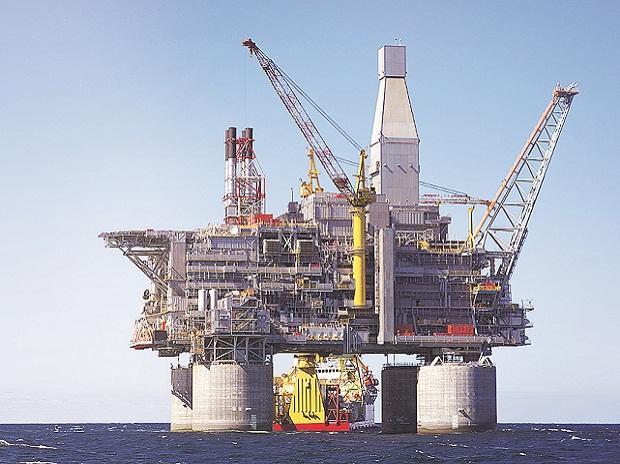Reliance Industries, bp start regular production from MJ field in KG block
Reliance Industries Ltd and its partner BP Plc on Friday announced the commencement of regular production from the MJ oil and gas field in the KG-D6 complex, helping to boost India’s production of clean fuels to more than 100 million cubic meters per day.
MJ is the third and final set of finds in block KG-DWN-98/3 or KG-D6, off the east coast that the consortium has been working on. All three Discovery Sets, with MJ being the deepest, were made over a decade ago and have been gradually put into production.
The companies said in a statement on Friday that the three groups of discoveries at their peak production will account for 15 percent of Indian demand.
“The start of gas and condensate production from the MJ field follows the commissioning of the R-Cluster field in December 2020 and the Satellite Cluster in April 2021,” the company said.
All three developments utilize the existing hub infrastructure of the complex.
“The three fields together are expected to produce about 30 million standard cubic meters of gas per day (one billion cubic feet per day) when the MJ field reaches peak production,” she added.
“This is expected to account for about a third of India’s current domestic gas production and meet approximately 15 percent of Indian demand.”
However, they did not give timelines for peak production to be reached.
Reliance-bp in May 2013 struck a 155-meter-thick gas condensate column in the exploration well KGD6-MJ1, which was later named D55 or MJ-1.
The MJ field is located about 2,000 meters below the DHirubhai-1 and 3 (D1 and D3) fields which ceased production in 2020.
Mukesh Ambani, Chairman and Managing Director of Reliance Industries, said, “We remain proud of our partnership with bp that brings together our expertise in running complex projects under some of the most challenging environments of the past few years. Along with other KG D6 areas, the development of MJ Truly supports ‘Make in India’ and ‘Energy Vision’ set by the Government of India.”.
The start of production from MJ helped the country’s natural gas production reach 101 million standard cubic meters per day on June 24.
Bernard Looney, Chief Executive of BP, said: “By safely introducing these new developments, Reliance and BP are making an important contribution to meeting India’s demand for safe gas supplies. Our close strategic partnership with Reliance now spans over 15 years and we are very proud of it. How it continues to go deeper – into gas, retail, jet fuel and sustainable mobility solutions.”
“Together we help meet India’s growing energy needs, bringing the best out of each partner to create real value,” he said.
Discovered in 2013 and certified in 2019, the MJ field is located in water depths of up to 1,200 meters approximately 30 kilometers from the existing onshore terminal at Gadimoga on the east coast of India.
MJ is a high-pressure, high-temperature (HPHT) gas and condensate field. The field will produce from eight wells and reach peak gas production of about 12 million cubic meters of gas and 25,000 barrels of condensate per day.
The field has been brought to production using a new floating production, storage and offloading (FPSO) vessel, the ‘Ruby’, to process and separate condensate, gas, water and impurities, before the gas is sent ashore for sale.
The condensate is stored in the FPSO before being discharged onto shuttle tankers to supply Indian refineries.
Reliance is the operator of the KG-D6 block with a 66.67 percent stake and BP retains the remaining 33.33 percent stake.
To date, Reliance has made 19 gas discoveries in the KG-D6 complex. Of these, D-1 and D-3 – the largest of many – were put into production in April 2009, and MA, the only oilfield in the block, went into production in September 2008.
While the MA field ceased production in September 2018, production from D-1 and D-3 ceased in February 2020.
Since then, Reliance-bp has invested $5 billion in the production of three deepwater gas projects in Block KG-D6 – R-Cluster, Satellites Cluster and MJ.
The first set of two discoveries produced 18-19 million cubic meters of gas in the quarter ended March 31, according to Reliance’s annual financial statement.
